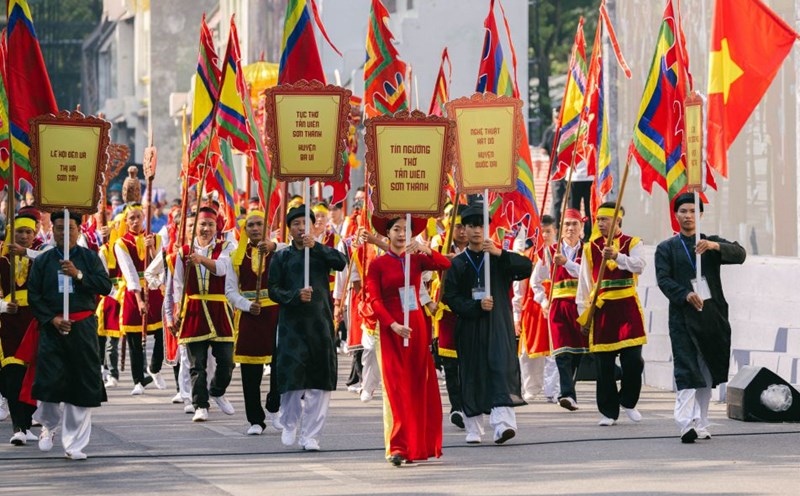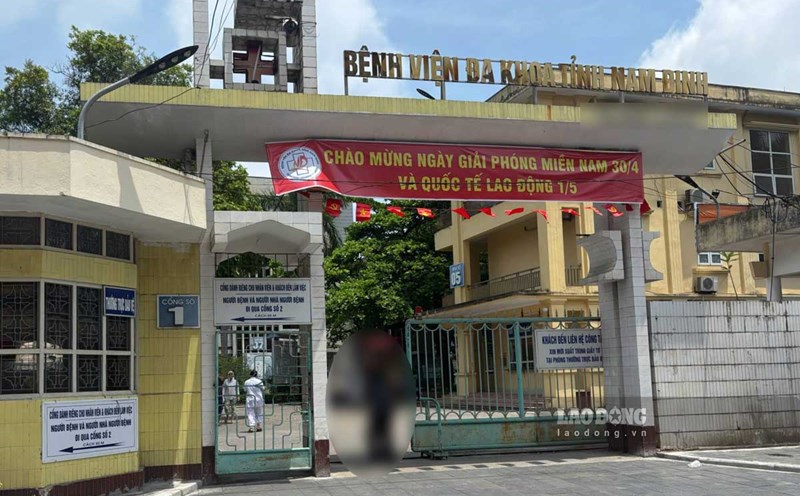Preserving Muong cultural identity
Hoa Binh is a land rich in traditional ethnic culture, the homeland of folk songs and Muong gongs that captivate people. The indigenous cultural identity with traditional characteristics of the Muong people is still preserved and introduced to domestic and foreign tourists.
Among them, Muong Xanh village in Cao Son commune, Luong Son district, the gateway to the Northwest region, is a place that preserves intact the unique cultural features of the Muong ethnic group. This miniature Muong village amidst lush green mountains, with stilt houses looming on the mountainside, is a place where tourists can explore unique cultural features and distinct identities, and interact with the hospitable Muong ethnic group.
Speaking with Lao Dong Newspaper, Ms. Vu Thi My Lien - Director of Ban Muong Xanh Ecological Area - said that this place is located in the middle of an area where 6 ethnic groups live: Muong, Kinh, Thai, Dao, Tay and H'Mong, with Muong people making up the majority.
A community tour in a miniature village of ethnic groups brings a sense of peace to visitors. Each experience is like a painting that creates a harmonious picture between traditional culture and nature, wild and rustic beauty. Interesting activities include folk games, bamboo dancing, learning to make Northwest sticky rice...
Besides the songs, dances and majestic sounds of gongs, visitors can also learn about the special cultural heritage: Khaw Doi (Khao Roi) bamboo calendar. This is a national intangible cultural heritage of the Muong ethnic group.
In ancient times, before writing paper was invented, people used bamboo to make a special type of paper to record and store information. The Muong people used bamboo cards to record dates and make calendars.
Over time, the folk knowledge of the bamboo calendar of the Muong people has been preserved for more than a thousand years. A calendar consists of 12 bamboo sticks, 25 to 30cm long. Each bamboo stick is engraved with 30 signs, representing 30 days in a month according to the lunar calendar. The signs and symbols on the bamboo sticks not only reflect the factors that govern daily life but also describe astronomical phenomena and the conjunction of the moon with the Roi stars.
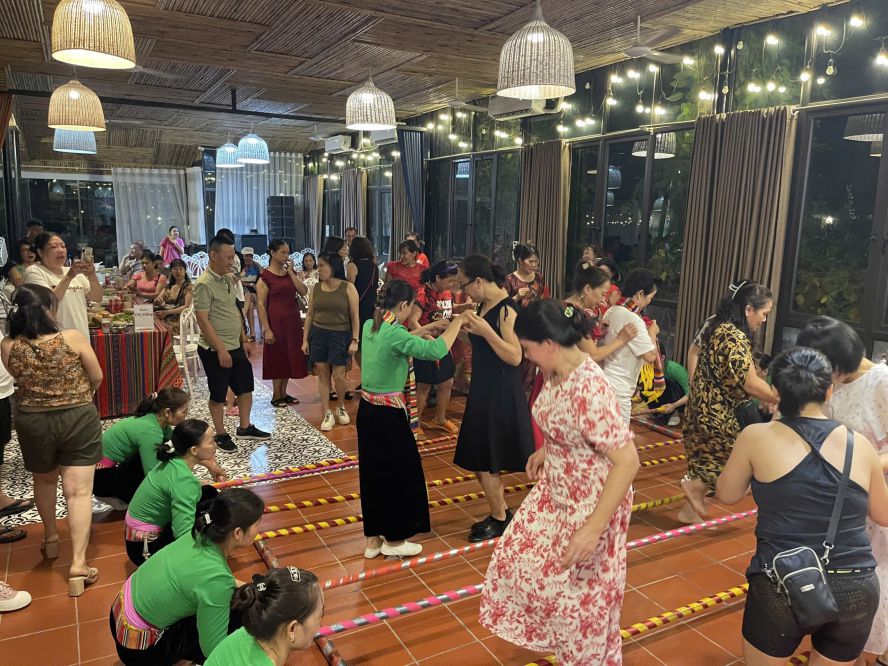
Experience traditional life
In the traditional stilt houses of the Muong people here, the lifestyle and many traditional production tools made from wood, bamboo, and rattan such as weaving frames, bows, crossbows, farming tools, etc. are still preserved, forming unique customs in daily life as well as daily production.
Experiencing the pure agricultural life of the people here; listening to the charming Muong girls in traditional costumes introducing the weaving profession and brocade products such as pants, shirts, handbags, scarves and souvenirs... is something not to be missed. In addition, during the meal, visitors will enjoy typical dishes of the Muong people such as sticky rice, purple sticky rice, pork served on banana leaves, steamed stream fish...
Muong Xanh Village is not only a community cultural tourism destination but also creates jobs, increases income and improves the lives of local people.
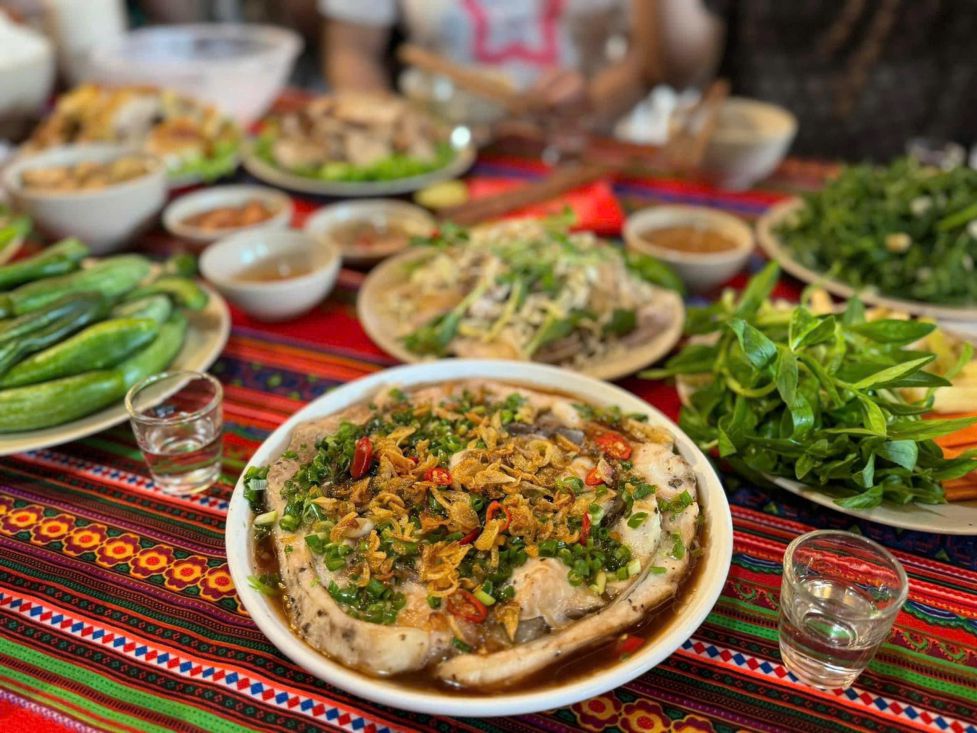
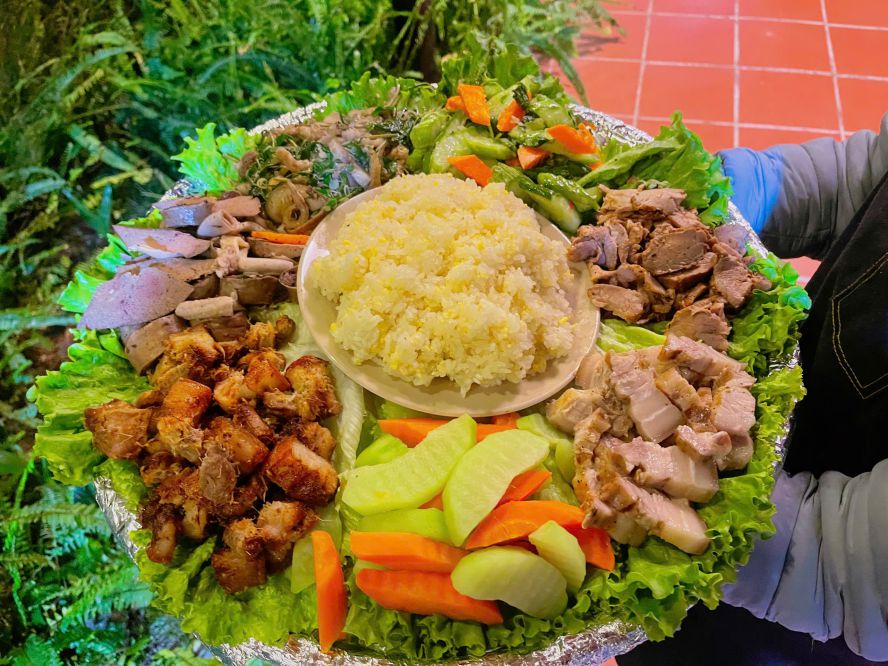
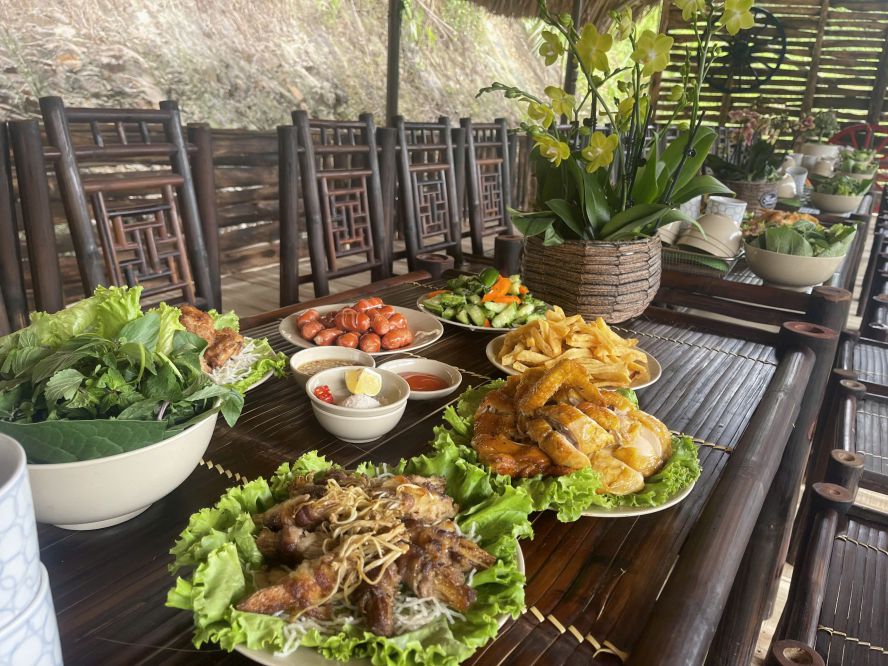
Mr. Bui Anh Tuan (born in 1976, local resident) shared: “After 5 years of working in the eco-zone, I have clearly seen changes in the lives of people in the area. Previously, the main job was farming, but thanks to the eco-zone, it has created many job opportunities for me as well as for people to have a more stable source of income, instead of just depending on traditional agriculture”.
Ms. Quach Thi Kieu - Director of the Department of Culture, Sports and Tourism of Hoa Binh province - said that community tourism in Hoa Binh province has been developed for a long time and has many unique features such as close natural scenery, unique culture of ethnic groups such as Muong, H'Mong, Thai... delicious food, friendly people.
Through that, Hoa Binh has attracted domestic and foreign tourists. Currently, Hoa Binh province has many mechanisms to build policies to support and attract investors to develop tourism; create favorable conditions for economic sectors to participate in tourism business activities to develop the economy and create jobs for the people.



